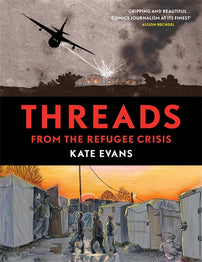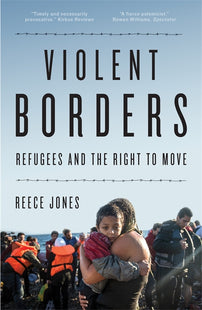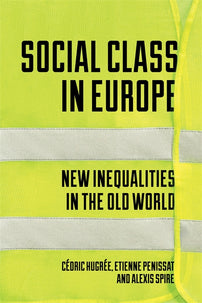The Gilet Noirs navigate the lockdown
Luke Butterly charts the plight of undocumented migrants in France, the Gilet Noirs, during the COVID-19 crisis

Since the outbreak of Covid-19, life for undocumented migrants in France has become more precarious and dangerous. In addition to the health implications, some of the most acute risks have come from the ‘safety’ measures associated with the state of health emergency. Be it on the street, at work, or even at home, for undocumented migrants, the lockdown has proven as great a threat as the virus.
In this context, the gilets noirs (‘black vests’) have been organising. The group of undocumented migrant activists gained headlines last year with their high-profile protests at and in symbolic locations across Paris. These included occupations of France’s largest airport (to protest deportations), the city's business district ( to highlight the exploitative practises of French multinationals in Africa), and the Pantheon - the final resting place of many historic French citizens (and thus a challenge to France’s promises of liberty, equality, fraternity). Through these actions, they seek to show that living at the sharp end of France’s immigration system means that ‘Humiliation, Exploitation, Deportation’, is a more accurate French national motto.
The movement, composed of hundreds of migrant workers sharing different languages and nationalities, consistently put an analysis of capitalism, borders, and colonization to the fore of their statements and actions. “We denounce at each occasion colonialism, wars, and economic pillage led by France and other imperialist regional or world powers,” a recent statement from the group read. While the gilets noirs help their members in their individual fights to regularize their immigration status, the group regularly articulates a call for systemic change: “against the system which keeps us undocumented.”
In the new context of Covid-19, where protests and gatherings are severely curtailed, the group has been finding new ways of supporting migrants across the city as they navigate the lockdown. A recent communiqué from the group noted that although schools, restaurants, and cultural places have been closed, the police, the courts, and immigration detention centres continue to operate.
At Work
The lockdown has meant the closure of many businesses, and workers have found themselves out of a job. Undocumented migrants, especially those without contracts, are not be able to access unemployment benefits - despite often paying into the system (a common situation with undocumented workers in many countries).
Yet for those still in work, things are not easy either. Many of the sectors that rely heavily on immigrant labour — such as in cleaning, food delivery, security, or care — are still operating in the era of the lockdown. The CGT trade union has warned that these frontline workers are often deprived of the necessary clothes and equipment to protect themselves and their health. The union says the worker’s lack of secure immigration status makes it easier for their employers to ignore requests for safer working conditions.
Marilyne Poulain, a CGT organiser working with undocumented migrants, told me recently that there is currently “lots of anxiety” among workers. There has been a marked increase in such precarious workers “sick with worry” calling the union for help. The CGT has called for the mass regularisation of such undocumented workers, without whom “entire parts of the economy could not function”.
On the Streets
Those who still have jobs face another threat before they even get on site: the police. Diakité, a gilets noirs member originally from Mali and now living in Paris, says that for many undocumented workers who are still employed, travelling to their job can be the most dangerous part.
As part of the lockdown in France, for the past eight weeks everyone leaving their home must carry a form stating the reason why (from a short list of options, such as travelling for food, medicine, or work). 100,000 police officers were deployed to implement these measures. For undocumented migrants - and for the millions of French citizens of immigrant descent - this greatly increased the scope of the French police to intrude in their lives, in a country where such racial profiling and police violence is renowned.
Since the lockdown was introduced mid-March, there has been a sharp rise in the number and severity of instances of serious harassment and violence by police, mainly targeted at black and Arab residents of working-class neighborhoods. There have been numerous cases of police racially harassing people on their way to work or the shops. Several people have been killed by the police during such controls, including a young father of three in Béziers, a town with a far-right mayor and a nightly curfew. A young man riding a scooter in a Parisian suburb was recently seriously injured after witnesses say the police caused a collision by opening their car door as he drove past.
For undocumented migrants, police stops also bring the risk of detention or deportation orders. Diakité says that identity checks have become increasingly common, and that people have not left their homes for weeks for fear of an encounter. The gilets noirs claim officers wait outside of their migrant worker group homes, or foyers, ready to pounce. ACTA, an activist media network, has claimed that police are handing out fake fines, to be paid on the spot and in cash. “There are foyers where the police wait for people in front of the courtyard, and you are fined even for smoking a cigarette just outside. The undocumented cannot even go and buy a baguette at the bakery. You can have the government form with all the information, but it is useless if you do not have papers,” Diakité said. (Restrictions to the lockdown introduced this week mean that people no longer need to carry this government form.)
While the threat of being detained is very real, the number of people in detention has decreased during the crisis. Deportations, which had increased under Macron’s presidency, are now almost impossible to carry out as borders close around the world. As immigration detention is supposed to only be used as a precursor to deportation, the government was pressured into releasing many people. France has gone from detaining more migrants than any other country in Europe to having most centres currently empty. But the detention system is still operational. Those centres which still hold people there have seen hunger strikes and riots, as people demand to be released from facilities where the conditions are, according to migrant aid groups, 'completely at odds with coronavirus guidelines'.
the current 'state of sanitary emergency' cannot help but bring to mind France's state of emergency legistlation, the author and editor Léopold Lambert has argued. The latter legislation was first introduced in 1955 to suppress the Algerian revolution, and has been enacted several times over the last six decades. Lambert has argued that there is thus a ‘colonial continuity’: that states of emergency, including the current state of sanitary emergency, “always affects the same people: namely racialized people, with racialized people in France still being a majority of people whose families have been colonial subjects in the past. So we really have this continuity”.
At Home
While safety is not to be found in the workplace or on the streets, it is also absent for the homes many undocumented live in. Many precariously or irregularly documented migrant workers in France live in migrant worker homes (‘foyers de travailleurs migrants’, or simply ‘foyers’). Residents of these public housing facilities have said that there is no shelter from COVID-19 there. “The virus and the lockdown in the foyers without information and protective measures is a serious danger for us”, Diakité told me.
Created in the late 1950s, these foyers were originally constructed to provide homes for the many thousands of Algerian migrant workers living in shantytowns in cities like Paris, Nice, or Marseille. The motives of the French government were not merely altruistic in this endeavour. With the advent of the Algerian war of independence in 1955, the French government built these homes to facilitate the political, administrative and social control of the Algerian population in France, deemed to be a potential ‘internal front’. Indeed, many retired colonial officers who had previously served in North Africa were chosen as managers of the homes. Despite - or perhaps because of - these origins, these foyers are a frequent site of resistance and organizing.
Today there are several hundred foyers across France, of which the gilets noirs have a presence in around 40, mainly in greater Paris. The shared rooms are small and social distancing is impossible. “They want us all to stay home, not go out - which we do. But in the foyers, it's complicated,” Diakité said. “There are 4 to 7 people to a room . . . no one can respect the safety distances.” When France declared the lockdown, the gilets noirs claim the management left the buildings, without providing accessible information or sanitary resources, and locking behind them kitchens, prayer rooms and meeting places.
Information about Covid-19 and what safety measures to take was insufficient, Diakité said. “They put up some posters about the virus in French, which more than half the residents can neither read nor write.” Diakité claims that masks or other such hygiene equipment has not been distributed. “The managers only care about the rent, the rest they don't care about,” he said. “The managers only come twice a week for three hours a day, just to claim the payments and they leave, they stay locked in their office they don't even want to talk to people.”
Others worry that the cure will be worse than the cause. ACTA have warned that the state of health emergency is being used for repressive purposes vis-a-vis immigrants. They state that in one foyer undocumented migrants who had previously lived in the kitchen on the ground floor were expelled at the start of the lockdown. While managers say they are worried about hygiene measures, it has also presented an excuse to expel "over-occupants".
In response, the gilets noirs have been working with other groups to collect and distribute essentials since the start of the lockdown. This has included masks and hand sanitizer, but also non-perishable food and cooking oil. A kitty has also been opened for those out of work. The group has been making sure people have the information they need about the virus and the precautionary measures to take in languages they understand.
As well as meeting the essential health and food needs of their members, the gilets noirs are also attempting to organize a rent strike for the months where people cannot work. “Many people no longer work and there is no more income. Even those who are on unemployment assistance find it difficult to get by. People who can no longer afford a few things to eat, how will these people be able to pay their rent? It is not possible.” Diakité said. “It will get more difficult as things progress: if someone does not work, they cannot pay their rent - and if they cant pay rent they will be kicked out, so we will see many more people living outside.”
“That is why we are trying to organize a rent strike, for the months when people are not working.” There is a rich history of activism over many decades to draw inspiration from, including the rent strike carried out at many migrant worker homes from 1974-1980. A history that continues to be created in the here and now. “The gilets noirs will rise up against any immigrant that is in distress,” a recent statement posted by the group read. "Despite what the state wants us to be, we live an intense and independent political life . . . Protect yourself, defend yourself and fight.”
Luke Butterly is a freelance journalist based in Belfast. His writing has also appeared in The Nation, New Internationalist, and other publications.
[book-strip index="1" style="display"]


